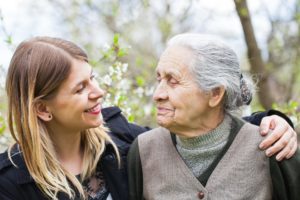 November is observed as National Family Caregivers Month. It is dedicated to recognizing and honoring the selfless individuals who provide essential care and support to ill, disabled, or elderly loved ones.
November is observed as National Family Caregivers Month. It is dedicated to recognizing and honoring the selfless individuals who provide essential care and support to ill, disabled, or elderly loved ones.
National Family Caregivers Month was established to recognize their significant contributions and raise awareness about their challenges. President Bill Clinton officially proclaimed it in 1997 as a time to honor and support caregivers across the country.
Celebrating family caregivers during National Family Caregivers Month enables all of us to:
- Raise awareness of family caregiver issues
- Celebrate the efforts of family caregivers
- Educate family caregivers about self-identification
- Increase support for family caregivers
- Reduce feelings of isolation
Families are often the primary source of support for older adults and people with disabilities. Today in America, more than 53 million family caregivers provide unpaid care.
There are several ways to get involved and show your support for family caregivers during National Caregivers Month, including:
- Express your gratitude
- Offer assistance
- Join support groups
- Advocate for caregiver rights
- Donate to caregiver organizations
Family caregivers should be celebrated every day. This is a time to recognize and honor caregivers nationally, raise awareness around caregiving issues, educate communities, and work to increase support for our nation’s caregivers.
All content of this newsletter is intended for general information purposes only and is not intended or implied to be a substitute for professional medical advice, diagnosis or treatment. Please consult a medical professional before adopting any of the suggestions on this page. You must never disregard professional medical advice or delay seeking medical treatment based upon any content of this newsletter. PROMPTLY CONSULT YOUR PHYSICIAN OR CALL 911 IF YOU BELIEVE YOU HAVE A MEDICAL EMERGENCY.

